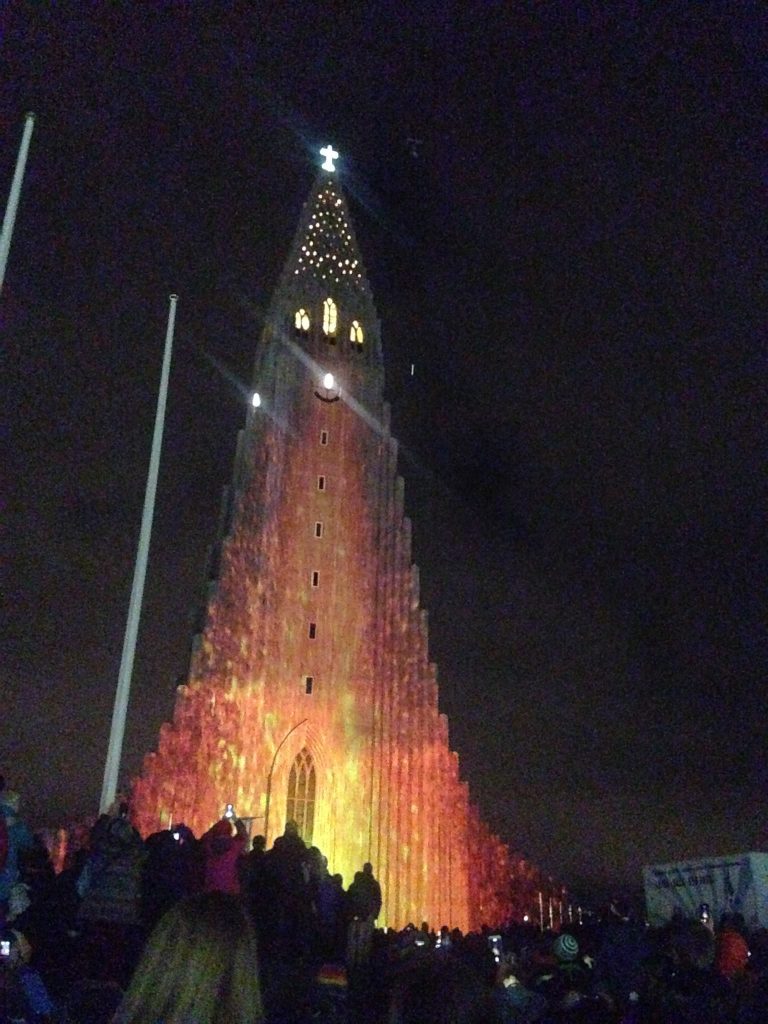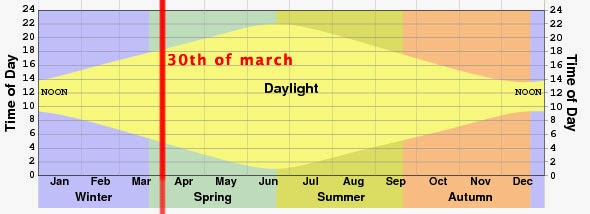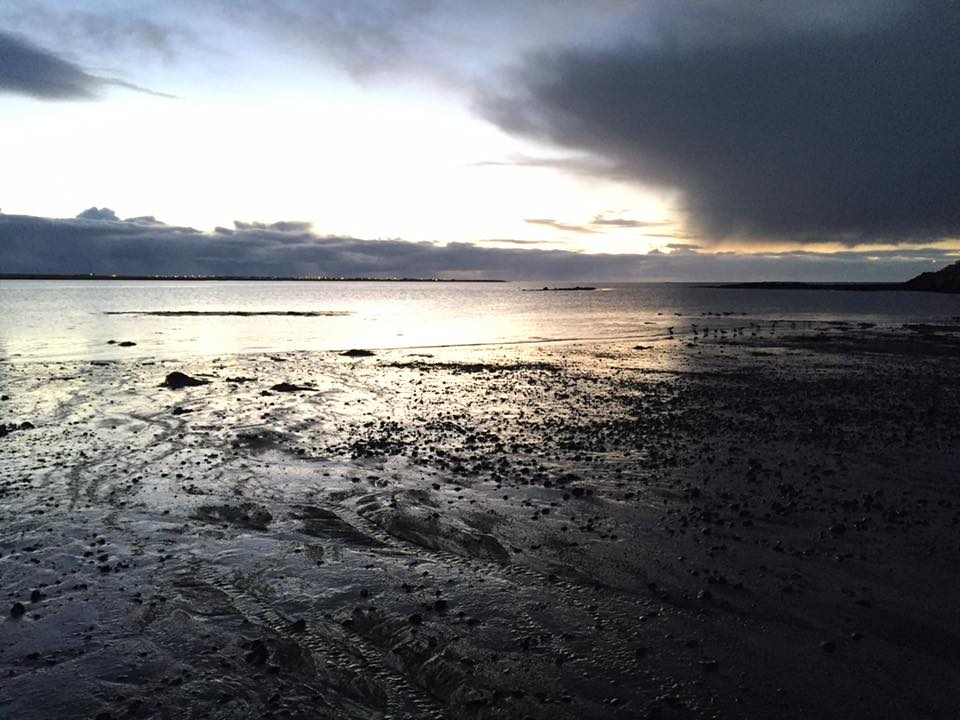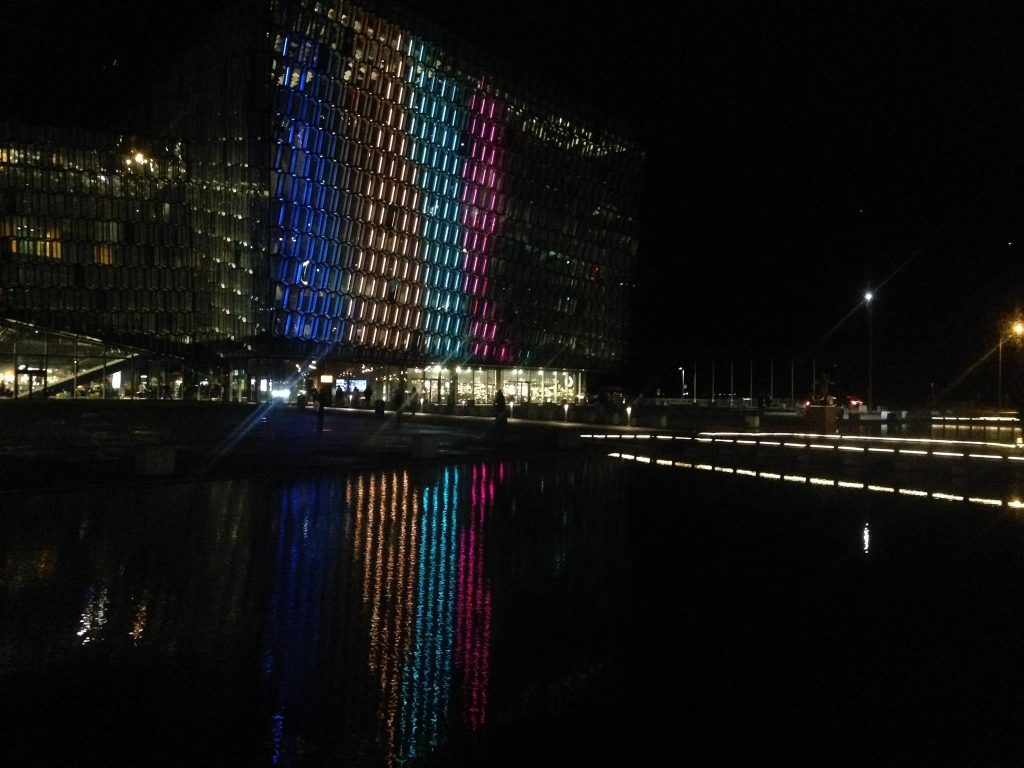Escaping the Mid-Winter Doldrums with the Winter Lights Festival Posted by Meg on Feb 8, 2017 in Uncategorized
So, here in Reykjavik, we just blew through the Winter Lights Festival (simply, Winter Festival vetrarhátið). Unfortunately, I was a bit under the weather and wasn’t able to make it to many events, and, apart from large-scale displays in the city itself and a tour of the arboretum/botanical gardens, I don’t have much to share. So I’d like to talk a bit about the skammdegi and the importance – or my take on it – of the festival itself at this point in the year.
I’m particularly enamored of the old Icelandic calendar in this regard because it’s divided into two “seasons”: the short days (skammdegi) and the nightless days (nattleysi). I like looking at the revolution of the earth in this way when I’m in Iceland; the seasons do tend to run together, differentiated for the most part by the amount of sunlight.
At the moment, we’re still in the throes of the skammdegi, which started in mid-October and will continue until the end of einmanuður (the lone/singular month). Einmanuður ends in mid-April, when Harpa (Harp) welcomes the return of the sun.
Now, the Winter Lights Festival is an interruption to the long, dark days of winter – which are largely gray and windy. It wears on you. Luckily, many Icelanders are acclimated to lightlessness, but for those of us who grapple with a lack of energy and productivity during these months, a SAD lamp comes in handy. Icelanders recommend taking lýsi, or fish oil tables, during this time to battle the negative mental and physical health effects.
SAD, in my experience, can make you feel pretty removed, unmotivated to reach out to others or to keep a routine. So, in 2001, the Winter Lights Festival was founded. And it really does help (when you’re not sick!) to draw you out of your nook into the world. The attractions range from an app that interfaces with Harpa Concert Hall that allows passersby to “paint” in the colorful lights that adorn its geometric glass panels to free museum nights and laser shows, nature walks and old Icelandic handicraft workshops. And, of course, this year there was a stunning art/light instillation on the famed Hallgrimskirkja. The wide and varied events of this four-day fest don’t all revolve around the light (free swimming pool night, e.g.), but the emphasis falls on light sort of making an incursion into the dark days.

So, to wrap this week’s blog up without much ado, here are a few words to arm yourself with during the skammdegi:
–Að stytta – to shorten (ég stytti, þú styttir, hann/hún/það styttir…).
–Skamm- which simply means ‘short’ in compound words.
–Að lækka – to lower, to go down (sólin lækkar á lofti)
–Að hækka – to raise, to go higher (sólin hækkar á lofti)
–Gluggaveður – window weather (when it’s better to look outside than to go outside…)
–Ofsaveður – violent storm weather (more than a storm – rok – and less than a hurricane – fellibylur
–Árstíð (pl: árstíðir): Season/time of year!
Till next time!
Meg

Build vocabulary, practice pronunciation, and more with Transparent Language Online. Available anytime, anywhere, on any device.






